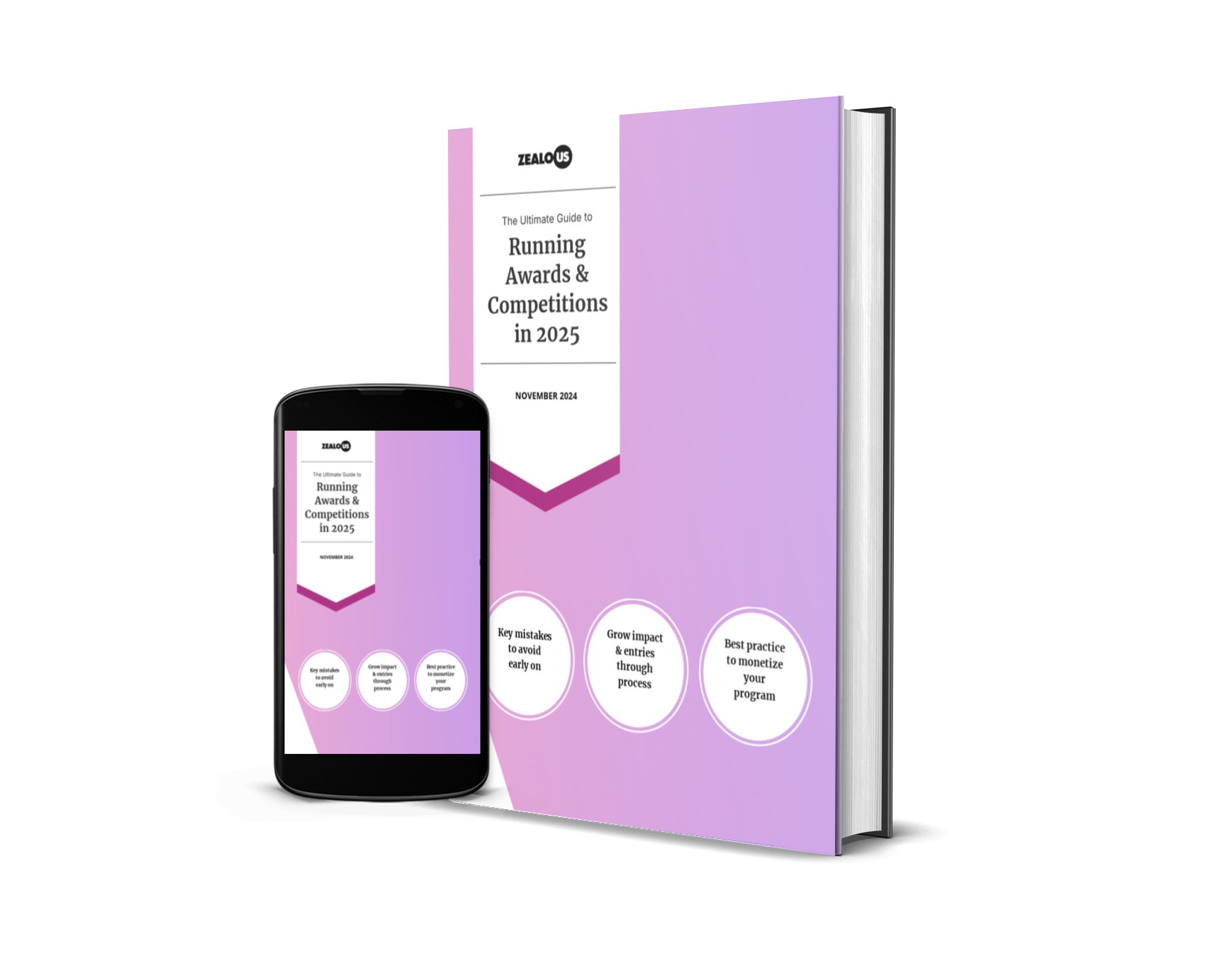This article covers:
- Who to approach
- How to approach them to ensure a positive outcome
- Making their experience as good as possible
Who to approach
When putting together a judging panel, make sure the individuals complement each other and create value for creators submitting to your call. Good combinations are a mix of artists, organisations supporting them and the press. If you have sponsors, you may also consider including them. If your sponsor works in a radically different industry, find someone within their organisation that provides value to those who submit (e.g. an art buyer for a big financial firm).
Emailing recognisable people at random is not going to end well. Spend time researching the potential judges to make a link between what you are doing and their interests in (e.g. Ian McKellen advocates for gay rights and ageing respectfully). Be sure to pick individuals whose interests align with yours.
Fostering diversity & inclusion
The make-up of your judge panel is paramount in getting diverse individuals to submit. If candidates cannot see a reflection of themselves in your judges, they are unlikely to engage with you.
Make it brief
Assume anyone with status will be swamped with proposals. Respect their time from the moment you approach them.
When you pitch an idea via email to someone, follow the rule of threes. A maximum of three emails; containing three paragraphs; made up of a maximum of three lines.
The paragraphs should be as brief as possible and include:
- Why you are contacting them + what you are organising
- What the commitment is + what you are giving them in return
- Offer to provide more information + your thanks
Fostering diversity & inclusion
Be mindful to keep language short and straightforward when reaching out to specific judges. Doing so allows communities who struggle with complex, flowery language (e.g. Dyslexia) to engage with you.
Make it personal
Never mass email judges or possible partners with generic messages. Your pitch needs to start with something that resonates personally with them and makes a case for them to read on.
e.g.
I love the work you have done advocating gay rights, your speech at Pride in Perth was inspirational! I am contacting you since we are currently organising an award to celebrate the diversity of the gay community and would love you to help us select the winners.
Understand the ask
Knowing your process before approaching anyone is vital. Key information that needs to be in your introductory email is:
- Timeline (start & end date)
- How long it will take (how many submissions will they be looking at)
- What they will be scoring, and how
e.g.
We know your time is precious, so we have made the process as simple as possible. We have chose an awards management platform streamlines the judging process to ensure the admin doesn’t get in the way of the entries you will be viewing. Judging should take a maximum of two hours. You would be scoring a shortlist of 25 five minute short films online between the 1st and 31st of March. You will be able to dip in and out of scoring during that period (it need not be in one sitting).
Fostering diversity & inclusion
Being flexible in your process to judge entries remotely can broaden your appeal to individuals with restricted mobility and time-poor communities.
What is in it for them?
Do you have a budget, or are you asking for help for free? If you are charging expensive fees and have a budget – be sure to reward your judges accordingly. However, if you do not, try and find creative ways to reward those who have so generously given their time.
What you offer is very much based on who you are approaching – think of what that individual would appreciate most. Is it expanding their reach, being associated with a specific cause, doing good with their time (e.g. individuals who have retired)?
Offering to feature your judges in a blog article and across social media could be appreciated by some – but will be of little value to those whose profile surpasses your own.
The more you demand of your judges, the more valuable what you give them should be. If you have no resources, your best option is to make the demand as small as possible.
Fostering diversity & inclusion
Some communities cannot afford to give their time for free. Try and offer struggling communities something tangible to have their voice represented on the judging panel.
Be credible
If you do not have a recognisable brand, it will be vital to appear credible in your approach to partners and judges. Be sure to include a link to your competition website or pitch deck in your email. Make sure whatever you send is as professional as possible.
Be sure to send your email from a business email address – sending it from a personal Gmail address could be a red flag (especially if it is an address you registered as a student, like [email protected]).
Other elements which help build credibility into your intro email are:
- An offer to speak further, with your contact details (be ready to take that call!).
- A footer including your name and position in the organisation
- A registered address
- Company / Charity registration number (if you have one)
- If you already have recognisable judges, let them know
Follow up
It is unlikely you will get a response to your first email. Be ready to follow up with another email a couple of days later to remind the potential judge of the ask.
Keep this email as short as possible. The idea is that you are just highlighting your previous message. The best way to do so is to respond to the email you sent initially to include your first message below your new email (copy-pasting it below instead will look messy).
Be sure to include any notable events that have taken place since you reached out to the judge in your follow up email.
e.g.
Since my last email, we are thrilled to have welcomed Sir Derek Jacobi and Maggie Smith to the panel and have been featured in the FT.
I would advise not to send more than two / three emails to contacts that do not respond (you may come across as pushy after three emails). Your final email should include a paragraph letting them know this is your last email.
e.g.
I realise you may be busy with other projects, so this will be my final email.
Get an intro
An email address is not always easy to find. It may be worth reaching out to judges on social media first to ask permission to contact them (the pitch there needs to be short). But ideally, you will be able to find someone who knows the individual (or knows someone who knows the individual) to make the intro.
Asking for an intro is an art form, do not ask your contact for the judge’s email address. Instead, send them the intro email to send on. If an interest develops, you will be able to have a more direct conversation.
Conclusion
Getting recognisable individuals to judge your programme provides very real value to candidates (they need not be celebrities). However, anyone who is a leader in their industry will be busy. It is likely that for every ten people, you contact you may get one positive response.
Making sure your judging process is simple, quick and well structured will increase your odds of success.
Find the people who will empathise with your programme, be brave, be tenacious and whatever happens, be polite irrespective of the result.
Let us know you want us to write more content like this with a love!
Share

Guy Armitage is the founder of Zealous and author of “Everyone is Creative“. He is on a mission to amplify the world’s creative potential.







